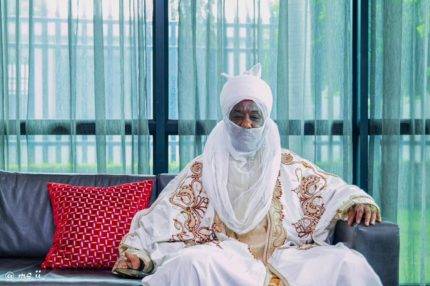Former Emir of Kano, Lamido Sanusi II, has sparked intense discussions about Nigeria’s leadership selection process with a striking observation. Speaking at a leadership summit in Lagos, he stated, “Nigeria is a country where we elect a president before asking if he understands the job.” This assertion underscores deep-seated concerns about the nation’s approach to choosing leaders, emphasizing the need for competence and readiness to tackle the challenges of governance.
As a former Central Bank Governor and respected voice in national affairs, Lamido Sanusi criticized the prioritization of political loyalty and regional interests over merit and expertise. He argued that this practice undermines Nigeria’s progress, leading to a cycle of poor governance and underdevelopment. His remarks resonated widely, igniting a fresh wave of dialogue on the urgent need for accountability and a shift towards merit-based leadership in the country.
Leadership Deficits: Root Cause of Nigeria’s Challenges
Lamido Sanusi linked Nigeria’s socio-economic challenges to weak leadership. He argued that when individuals lacking essential skills occupy pivotal roles, the ripple effects are felt across governance, economy, and society. “Leadership is not a popularity contest but a responsibility requiring vision, courage, and competence,” he asserted.
Nigeria faces issues ranging from insecurity to economic stagnation. Analysts agree that these problems stem from decisions made by unprepared leaders. Lamido Sanusi’s call to scrutinize potential leaders’ qualifications could pave the way for meaningful reforms in Nigeria’s political landscape.
Emphasis on Meritocracy and Competence
The Emir’s critique was not without solutions. He advocated for a shift towards meritocracy, urging political parties to prioritize competence over personal or regional interests. Lamido Sanusi argued that only leaders with the right skills and understanding of governance could navigate Nigeria out of its current predicaments.
He pointed to global examples where merit-based systems have spurred economic growth and stability. “Nations that invest in capable leadership reap long-term benefits. Nigeria must follow suit,” Lamido Sanusi concluded, emphasizing the need for systemic change.
Public Reactions: Mixed Opinions Emerge
Lamido Sanusi’s remarks have drawn mixed reactions from Nigerians. While some praised his courage in addressing sensitive issues, others criticized his timing and motives. Social media platforms were flooded with discussions, with many calling for more public figures to speak out against systemic flaws.
Critics argue that Lamido Sanusi, as a former leader, had opportunities to implement reforms but failed to do so. Supporters countered that his insights as an insider carry weight, and his critiques should prompt introspection rather than defensiveness.
Historical Context: Recurring Patterns of Leadership Failure
Lamido Sanusi’s statement reflects a recurring pattern in Nigeria’s political history. Since gaining independence in 1960, the country has witnessed several administrations plagued by unprepared leadership. Many of these leaders struggled to deliver on campaign promises due to a lack of vision or expertise.
Political analysts note that this trend has contributed to Nigeria’s stagnation despite its abundant resources. They emphasize that breaking this cycle requires reforms in the electoral process, including mandating rigorous vetting of candidates’ qualifications.
Call to Action: Charting a New Course for Nigeria
Lamido Sanusi’s critique serves as a wake-up call for Nigeria to rethink its leadership recruitment process. By prioritizing competence and vision, the country can foster a governance system that meets the needs of its citizens. His comments resonate with ongoing advocacy for electoral reforms aimed at promoting transparency and accountability.
As Nigeria gears up for its next electoral cycle, Lamido Sanusi’s words underscore the importance of informed decision-making. The responsibility lies not only with political elites but also with voters to demand more from their leaders. A collective effort could mark the beginning of a brighter future for Africa’s most populous nation.
Table of Contents
Discover more from OGM News NG
Subscribe to get the latest posts sent to your email.














